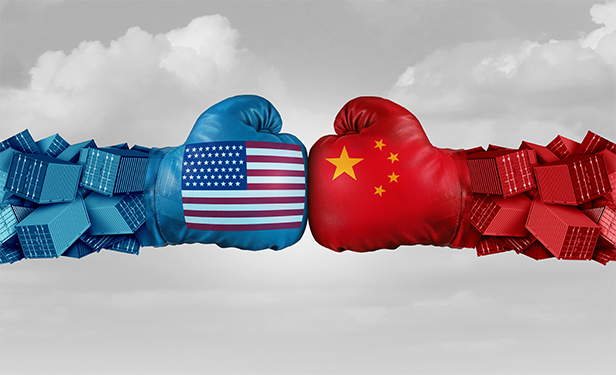
During the first half of 2020, two-way investment between the United States and China slumped to the lowest level in almost nine years, as relations between the world's biggest two economies deteriorated to their worst in decades and the pandemic hit business sentiment.
Combined direct and venture-capital investment between the countries totaled US$10.9 billion in the period, the lowest level since the second half of 2011, according to analysis by the U.S.-China Investment Project, whose lead organizations include Rhodium Group and the National Committee on U.S.-China Relations.
Recommended For You

The total would have been even lower were it not for a large acquisition in the United States that was carried over from last year.
Completed Chinese direct investment in the U.S. increased to $4.7 billion in the first six months, from $3.4 billion a year earlier. This year's figure was boosted by Tencent Holdings Ltd.'s $3.4 billion purchase of a minority stake in Universal Music Group Inc. Overall transactions remain low as the U.S. imposes stricter controls on Chinese investment, especially in technology.
"Despite escalating trade frictions, our numbers show little evidence of Chinese firms investing in the U.S. with the aim of localizing their operations in order to circumvent tariffs," the report said. The data "also shows that concerns about Chinese purchases of distressed U.S. assets on the back of the Covid-19 pandemic were overdone."
American direct investment in China fell 31 percent, to $4.1 billion, a trend that's unlikely to reverse in the near term. However, U.S. investment into financial services is one area which had significant growth, as companies such as JPMorgan Chase & Co., Morgan Stanley, and Goldman Sachs Group Inc. look to take control of their joint ventures in mainland China.
The drop in flows comes as President Donald Trump makes a hard line on China a central plank of his re-election campaign, with tensions between the nations on everything from trade to human rights. "So far, China's response to more aggressive U.S. policies has been restrained, but U.S. investors could face a backlash if relations continue to sour," according to the report.
The U.S. move against Chinese owned video app TikTok on national security grounds could be the start of a wider trend, the report cautioned. "Numerous other companies—both Chinese firms operating in the U.S. and U.S. firms with a presence in China—could face pressure to divest," the report warned.
© Touchpoint Markets, All Rights Reserved. Request academic re-use from www.copyright.com. All other uses, submit a request to [email protected]. For more inforrmation visit Asset & Logo Licensing.



